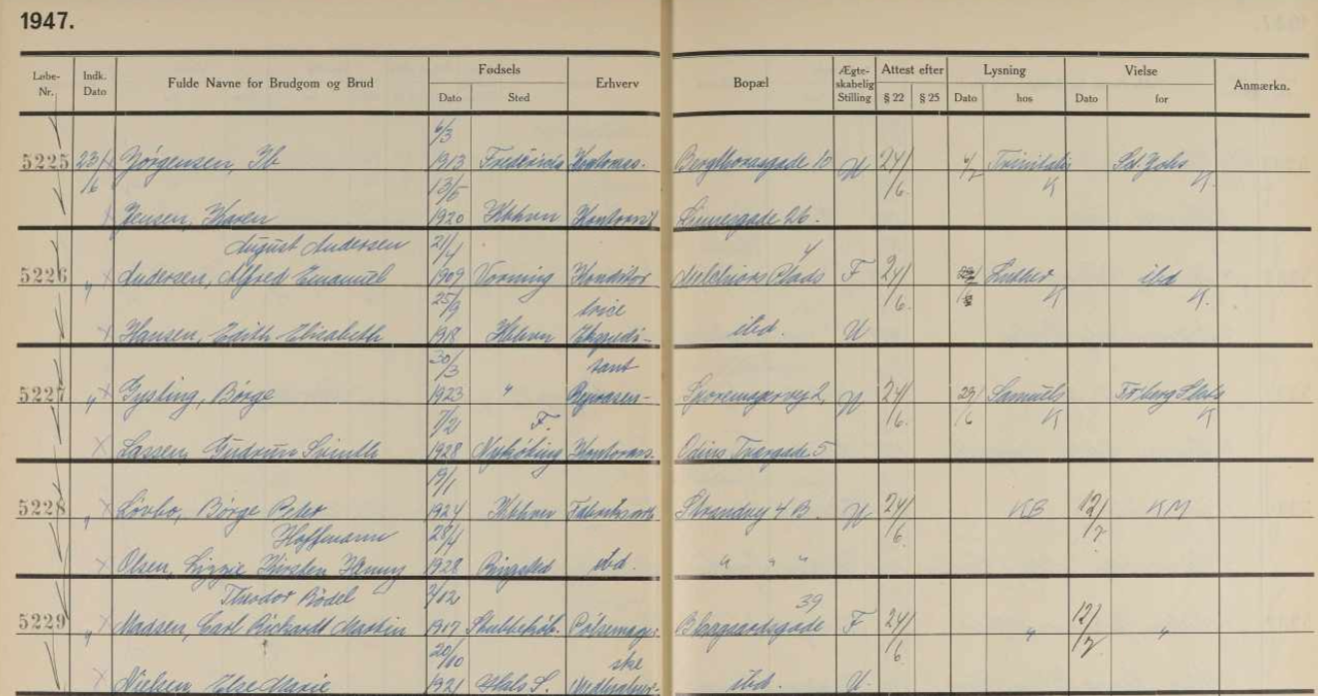Danish municipal registration of marriages interpreted as civil marriages
The above is the municipal registration of the marriage of my mother and father. However, even though the municipality registrered the marriage is was NOT a civil marriage. It was a church marriage at Mariendals Church in Copenhagen, and marriage was performed in the church on August 9th, 1947. The date - July 8th, 1947 - was the date the municipality issued the document, which allowed the marriage ceremony to take place. One of the reasons for this document is that certain marriages are not allowed, e.g. among relatives. Civil marriages in Denmark are normally performed in a town hall or other place by the major of the town.
Best Answer
-
The problem is that FamilySearch index all marriages as in Denmark as civil marriages, which they are not:
The column "Vielse" indicate where the marriage is performed. In that column "K M" indicate a civil marriage. KM is an abbreviation for Københavns Magistrat (Copenhagen Magistrate). The first 3 marriage in the above list are NOT civil marriages, as they were performed in two different churches in Copenhagen, i.s. Sct. Johannes church and Frederiksborg Slots church (actually outside Copenhagen, but the couple lived in Copenhagen). I am just objecting to all marriages on the above list being called civil marriages.
0
Answers
-
This is similar to what is found in England. If I order a marriage certificate, it is as likely to show the event took place in a church or synagogue as in a (civil) register office.
All marriages are certified in the same way, but obtaining a copy from the General Register Office or a local register office can show different detail. A copy of the General Register Office marriage record of my 2x great grandfather suggested he signed the original document with his full name, but the locally held record (a direct copy of the original) showed he just made his "mark"!
Not directly related to the situation in Denmark, but showing civil registration is probably necessary for ceremonies carried out in churches in many countries of the world. Where possible, I'd advise to always obtain a copy of the original document. In England, this will be in the same format (whether for a civil or church wedding, from 1837), but the "national" (GRO) version will probably not show original signatures, etc.
2 -
A 20th-century marriage license/affidavit in NYC was registered with the city and will show the name of the church, usually also the denomination, and the name/office of the person who performed the ceremony. Similar process. A sample: https://a860-historicalvitalrecords.nyc.gov/view/11128483
1


